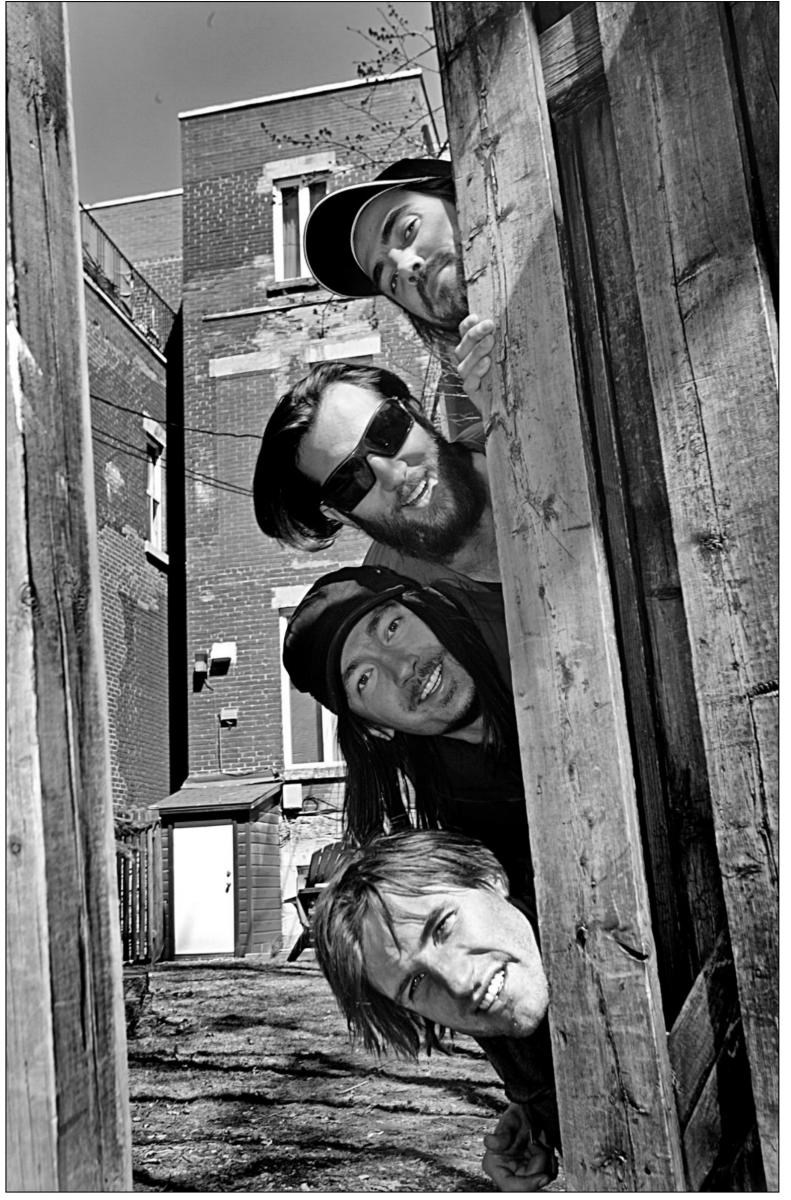PREVIEW
Patrick Watson with Wake Owl When: Wednesday, 7 p.m.
Where: Alix Goolden Performance Hall (907 Pandora Ave.)
Tickets: $25 at Lyle's Place, Ditch Records, and ticketweb.ca
Down one of the hallways of the Montreal home Patrick Watson shares with his wife and two children is a loft studio he shares with his bandmates in the group that bears his name.
The line that separates the two dwellings became paper thin during the sessions for his new album, In Your Own Backyard, a collection of emotionally stirring songs recorded primarily at the singer's home. "It was a very simple set-up," said Watson, chatting amiably on the phone during a tour stop in France.
"When we play live, it is always better than our albums, which makes me angry. We keep trying to make our recordings catch up to our live shows, so we try and keep an organic, in-the-moment place where mics are always up and we can press record and capture ideas."
The relaxed nature of the In Your Own Backyard sessions was something of a break from tradition for Watson; previously, the classically trained pianist wrote and recorded with grand gestures typical of Waterproof9, an experimental suite he wrote in 2001 to accompany an exhibit of underwater photos.
He shifted his approach to recording this time around, wanting only to "serve the song" rather than some complex arrangement. "This record, we wanted to make sure we put something out that gave people goosebumps. That was the only rule. The goosebumps rule."
In order to achieve that, Watson and his longtime group of core collaborators, which includes former Nanaimo resident Robbie Kuster (drums), Mishka Stein (bass) and Simon Angell (guitar), stripped down their sound to its bare essentials.
"It seems like all the good songs you listen to, if you had just a guitar and could sing it, it would be just as good. A good song is a good song. I still like arrangements and making crazy music, but the songs I release, from the base up, have to be sung with a voice and guitar and still work. I try to stay away from the dark, instrumental, strange land, because I can't feed my kids in that world."
The tour to support In Your Own Backyard, which brings Watson to Victoria for the first time in five years next week, has gone well thus far. Dates on a recent tour of France and Belgium were sold out, even those in some very out-of-the-way places, Watson said. Audiences in Europe, arguably the band's best market, have doubled in recent years, a signpost that the complex, non-commercial music Watson and Co. are making is catching on with a greater number of listeners.
The reason for that, according to Watson, is the band's adherence to the road.
"The type of music we make - we don't have big radio hits - the only way it works is playing a lot of live shows. Word of mouth, building a career that way, is how we've done what we've done. The bonus of it is that we were never built out of hype, so the fans who know us and have seen us play live always come back."
It isn't unusual for fans to travel great distances to see the band perform. Watson recalled meeting a fan at a show in Seattle once who had flown in from Texas. In Europe, he said, it isn't unusual to see the same faces at multiple shows by the two-time Juno nominees. "We're not necessarily the coolest band around, but the fans we have are there to stay."
A self-professed "army brat" who was born on an air-force base in California, Watson was raised in Hudson, Quebec, a small town on the Ottawa River. He has lived in Montreal for most of his life, and has seen some of the city's best acts reach unfathomable levels of popularity. His group has never reached such heights, but Watson isn't worried about his popularity.
"We never had the big hype. We were never the big band. I've never had to deal with what Arcade Fire had to deal with. They had a level of hype that was probably a lot more difficult to deal with. People expect us to make really good records, but Arcade Fire has to make legendary records. People expect me to put out good music that touches them and takes them somewhere. The expectation is a lot more manageable."
Watson scored a big victory in 2007 when Close to Paradise, the group's second album, took home the Polaris Music Prize - beating both Arcade Fire and Feist for the prestigious award (and its $20,000 purse). While that didn't translate into more album sales, it was a vindication of sorts for Watson and his dedicated bandmates.
"It's a real team effort. Everybody feels equal in this project. We're a big team of people who feel really happy when we do something together. It's tough not to feel grounded when you're surrounded by the individuals I'm surrounded by and work with."
The group was already rolling at the time of the Polaris win, having opened a string of European dates for James Brown in the summer of 2006. Years later, Watson is still talking about the experience and the lasting impact the down-to-earth Brown left on him and his group.
"It was a profound part of my building blocks when I started my career," Watson said.
"People who have the big attitudes in music don't last long, usually because they are mediocre. I've met those people who think they are really special, and they're really boring. As soon as you meet someone who has nothing left to prove and is really confident about what they do, they don't have to prove anything by asking for different-coloured jellybeans." mdevlin@timescolonist.com



